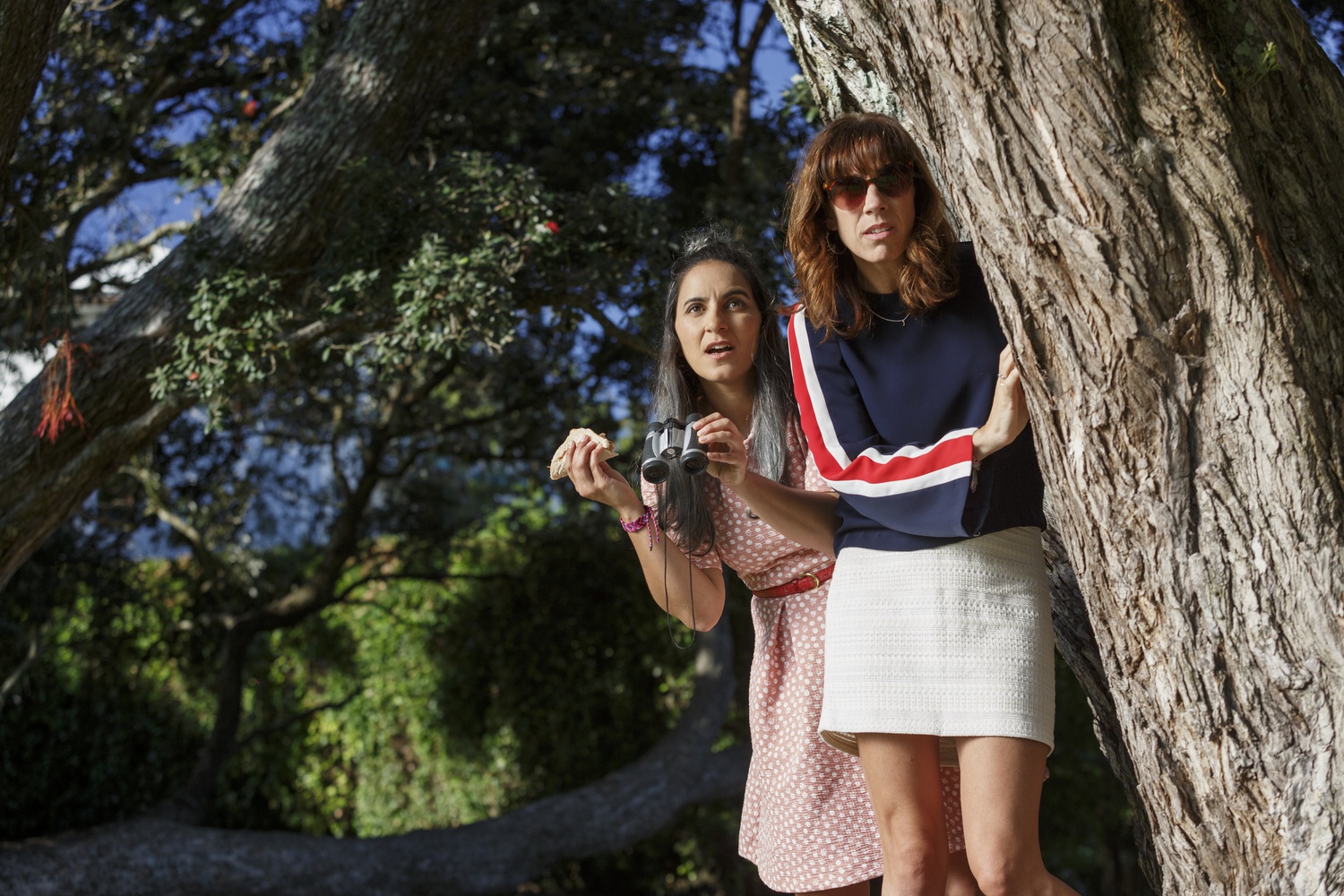
News
Summers Will Not Finish Semester of Teaching as Harvard Investigates Epstein Ties

News
Harvard College Students Report Favoring Divestment from Israel in HUA Survey

News
‘He Should Resign’: Harvard Undergrads Take Hard Line Against Summers Over Epstein Scandal

News
Harvard To Launch New Investigation Into Epstein’s Ties to Summers, Other University Affiliates

News
Harvard Students To Vote on Divestment From Israel in Inaugural HUA Election Survey
‘Little raisiny eggs’: Celebrating Womanhood in ‘The Breaker-Upperers’
Dir. Madeleine Sami and Jackie van Beek—3.5 STARS

Within the first few minutes of “The Breaker-Upperers,” protagonists Jen (Jackie van Beek) and Mel (Madeleine Sami) want you to know that they don’t just break up couples when something has gone awry — as Jen puts it, they’re “simply guiding two souls towards inevitability.” It’s easy enough, before watching, to assume that there might be some deeper insight into why people have such difficulty ending some of their closest relationships. However, this film stops at the surface level: tired tropes, jokes pandering to sexual, gender, and racial stereotypes, and a simple plot structure that makes some details easily forgettable. Of course, by the end, the viewer is left with the sense that this is all the film was meant to be — a lighthearted comedy about female friendship and how it can endure when the world throws men, sex, family, and biological clocks into the mix.
The premise is simple: Jen and Mel run a business specializing in getting people out of relationships, essentially functioning like a reverse Tinder. Their business of splitting couples apart, however, becomes complicated by Mel’s sudden relationship with a 17 year-old, the arrival of Jen’s cheating ex-boyfriend Joe (Cohen Holloway), who, true to rom-com form, is the sexy bad boy she never got over. Add in Jordan (James Rolleston), a young rugby player who wants to break up with his overwhelming and demanding girlfriend Sepa (Ana Scotney), and Mel’s new friendship with the ex-wife of a man who hired the two women, and things inevitably get complicated.
The New Zealand humor, much like British humor, makes it deceptively simple to coast past the movie’s over-reliance on stereotypes that are too dated to be funny. Case in point: Jen, tired of being single, starts to wonder if her family’s questioning about her sexuality may actually be rooted in fact. Mel promptly asks her if she knows who Kristen Stewart is and kisses her to test the family’s suspicions. Like anyone could have guessed, the kiss does not help Jen come to the miraculous conclusion that she is attracted to Mel, or to any other women.
Such moments occur repeatedly throughout the film, and take away from the better, deadpan moments that could have otherwise made the film succeed at what it really is: a rom-com written and directed by two women, Madeleine Sami and Jackie van Beek, who play Mel and Jen, respectively. The directors handle the relationship between a much-younger man and a much-older woman with sensitivity and realism — Mel and Jordan eventually break up, but there’s no squeamishness about the two of them getting together in the first place. Refreshingly, in the comparison to most Hollywood films, there’s even a scene in which Jordan performs oral sex on Mel, a sexual experience rarely portrayed in today’s cinema. Furthermore, two main characters of indigenous origins, Jordan and Sepa, are some of the largest, if not the largest, plot drivers of the entire film, taking center stage without reducing their complexities or backgrounds.
All these diverse bits in conjunction thus make the directors’ reliance on questionable stereotypes a little baffling: Did the directors think that pushing the boundaries of what is accepted in films meant they had to comfort their audience through the inclusion of other overused stereotypes? Did they feel that departing too much from preconceived notions of LGBTQ individuals and people of color would alienate Netflix watchers? Even by the time the ending credits roll around, the answer is still a bit unclear, which is a pity, because “The Breaker Upperers” is certainly designed to be a feel-good film, and it largely succeeds. It leans heavily on the complex friendship between the two women as they navigate the pitfalls of overcoming societal expectations of women in their 30s, the comedic effect of Jen’s family doing cocaine together as a bonding experience, and the portrayal of more than one sexual encounter not typically seen in many films.
The film’s big selling point is, however, its particular brand of humor: It’s not “The Office” funny, but the self-deprecation is all part of the fun. There are moments when the dryness and the deadpan stretches a joke further than it could otherwise go. Are some of them a little cringe-inducing? Yes. Are the other aspects of the film redeeming enough to render them less questionable? Perhaps not, but whatever Sami and van Beek set out to do, they’ve succeeded — for the most part.
—Staff writer Cassandra Luca can be reached at cassandra.luca@thecrimson.com.
Want to keep up with breaking news? Subscribe to our email newsletter.
